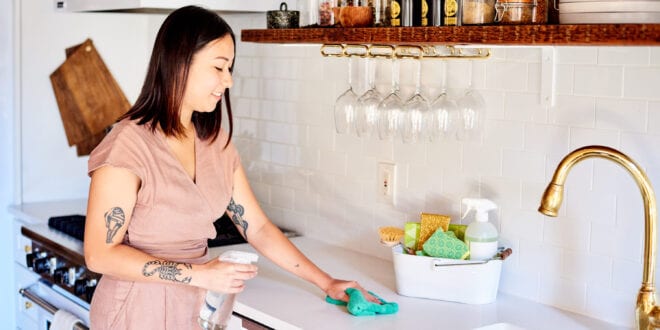Natural stone countertops are increasingly becoming the choice of most contractors and house owners for the right reasons. Though there are numerous options available today, many people still prefer these timeless materials for their durability and beauty.
The unique nature of natural stones also makes them popular. Interior designers have various options as every single slab is different from the other, making each work a masterpiece. Stone experts like Saturnia Travertini will help you find a design pattern and color that not only suits your personality but blends well with the character of any room.
Counters made of natural stone lasts long and can withstand accidents and other things like mishaps like hot coffee spills. With the proper care and maintenance of the countertop stones, you will not only make them last longer but also maintain a luxurious home.
Cleaning Tips for Different Counter Tops
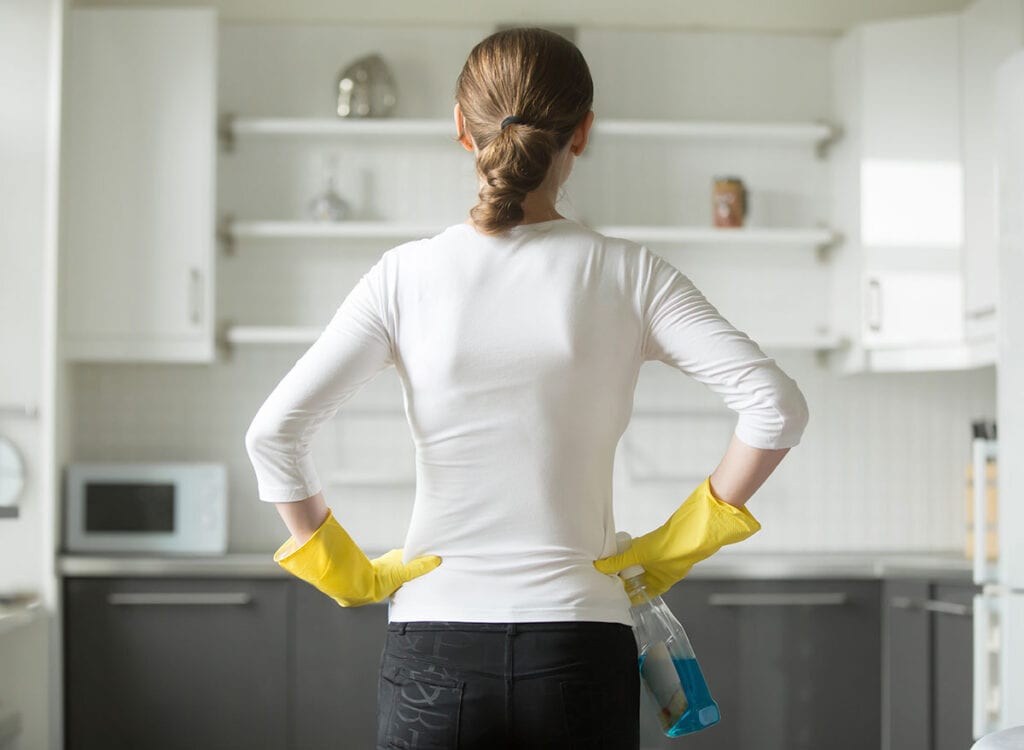
While your whole house needs proper cleaning often, high hygiene standards are non-negotiable when it comes to the kitchen. Whatever your choice of the kitchen countertop is, cleaning it in the right way is crucial. Though different stone countertops require specific care, here are general tips that apply to all the types.
– When subjected to excess weight, natural stone countertops can develop cracks. Avoid standing sitting on the counters, and use a step stool in case you need to get something that is high.
– Use a cutting board always as slicing or chopping directly on the counter may cause scratches on the surface.
– Always protect counters from hot pans, food dishes, or pots. Stone countertops can crack from the thermal shock caused by excessive heat. Consider using trivets that allow airflow under hot items, especially those that expose the surfaces to heat for many hours.
– Depending on the stone and color you choose for your kitchen counters, you will need to reseal after a while due to normal wear and tear. Experts advise you to reseal every three to five years and lighter stones after every one to three years for darker stones.
– Wipe spills immediately as acidic foods like citrus juices, salad dressings, vinegar, and wine may etch the surfaces. Also, handle foods with excess and artificial natural dyes carefully to stain the natural stone countertops.
Cleaning and Care of Granite Kitchen Countertops
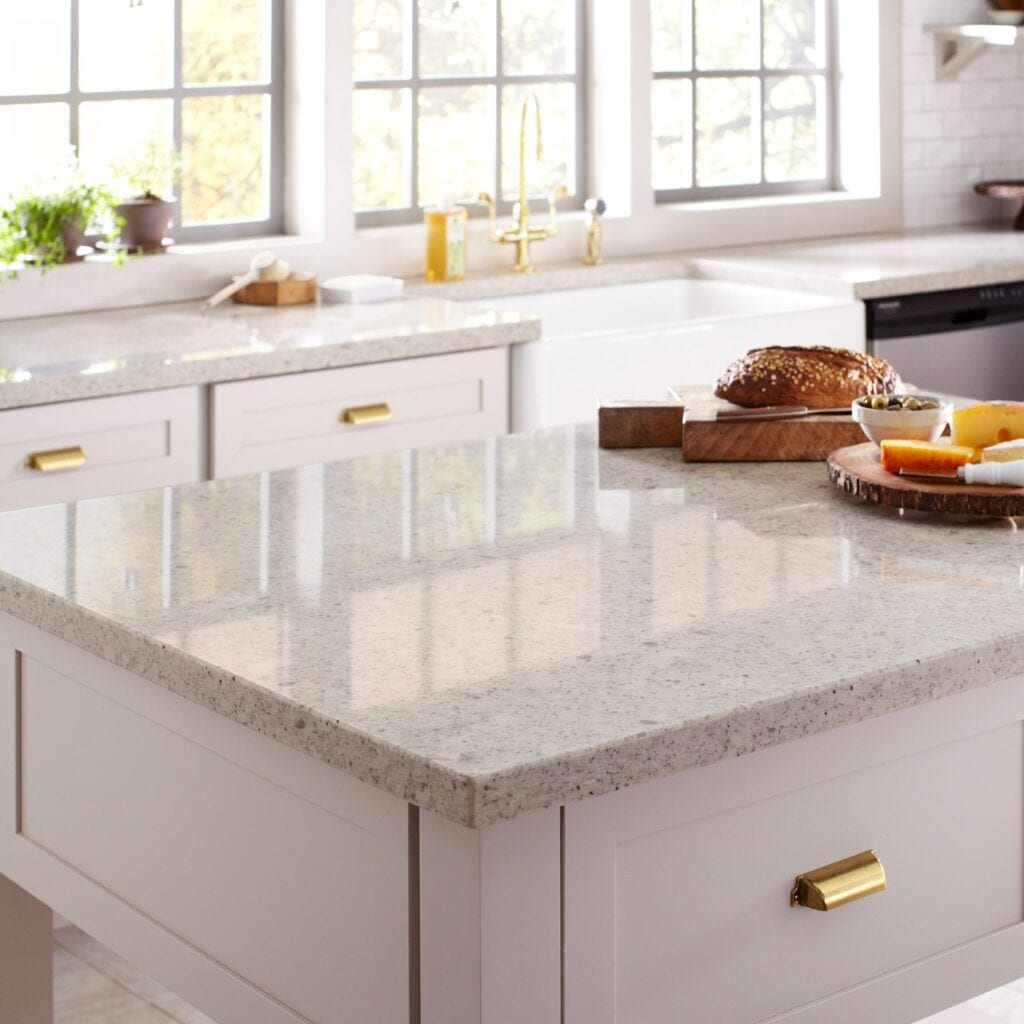
Granite slabs come in many formations and wide variety, making it among the most desirable countertops. Interior designers enjoy working on the stone as they are unique. Naturally, granite is anti-bacterial and proper sealant makes the finish easy to care for.
Use a dishwashing detergent and water solution to keep granites surfaces shiny. After preparing food, mix four cups of water and a teaspoonful of dishwashing liquid in a spray bottle, then spritz on the countertops and wipe with a soft cloth. Allow it to air dry.
Avoid harsh cleaners like lemon juice, vinegar, or foaming bathroom cleaners as they dull granite finish.
When prepping food items, use trivets, and cutting boards to prevent scratches from sharp and gritty objects. Stone experts will always give you a guide to follow when cleaning the granite counters.
Tough stains like beet juice or red wine may need a stronger solution like hydrogen peroxide and baking soda. You may also consider buying commercial stone poultice. Spread about a fourth-inch thick paste of the mixture with a peanut butter consistency over the stain, then cover with a plastic wrap. Tape down the plastic wrap edges to hold it well and leave the mixture on the spot for about 24 hours. After one day:
– Remove the plastic wrap and let the mixture dry thoroughly, then wipe it away.
– Repeat until the stain goes.
– Reseal the cleaned area to prevent further staining.
Cleaning and Care of Limestone Kitchen Countertops
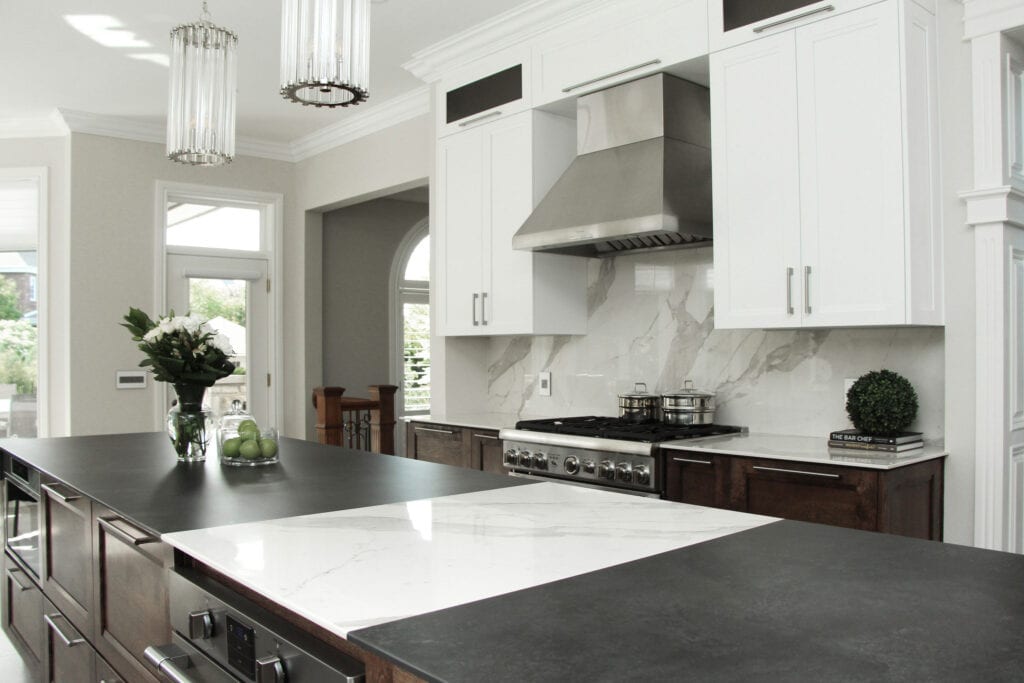
Limestone countertops will give you the luxe look of marble at a lower price; hence the natural stone is top-rated. The downside is that they require more care than other stone types. Because of its porous nature, limestone countertops discolors and scratches more quickly than other surfaces. However, they only need proper care and the right products to serve you for decades.
Avoid acidic and harsh cleaners on limestone countertops and instead, use dish detergent with warm water or a commercial limestone cleaner. Use a soft cloth for daily cleaning after food preparation.
Limestone’s soft and porous nature makes it more susceptible to stains from acidic or darkly colored foods like coffee, black tea, and red wine. Also, watch out for excessive heat that may scorch or burn the stone.
Use a mix of baking powder and hydrogen peroxide paste and follow the same stain removal procedure from granite surfaces.
You can lightly buff out scratches that are not deep using a car polishing compound. Once you clean, always reseal natural stone kitchen countertops.
Cleaning and Care for Marble Kitchen Countertops

Professional chefs treasure the classic marble countertop as it is a cool surface with the right temperature that is perfect for creating pastry. Like limestone, marble is porous; hence scratches and stains easily. While sealing the stone helps with stains, acidic foods etch marble fast.
Wipe up foods and spills from marble as soon as possible to keep the kitchen counters in excellent condition. Use water and mild dish detergent solution. A soft cloth ensures that you get the job done well and keep scratches off the surface. Avoid any harsh cleaners like glass cleaners with ammonia or vinegar. Reseal marble countertops after every 3-6 months.
Create a paste of hydrogen peroxide and baking soda to remove stains and metal rust marks. Apply generously and allow it to dry before wiping away the paste. Many stains fade gradually over time.
You can remove etching and scratches using a marble polishing powder carefully, using the product instructions keenly. Always reseal after polishing.
Cleaning and Care of Soapstone Kitchen Countertops
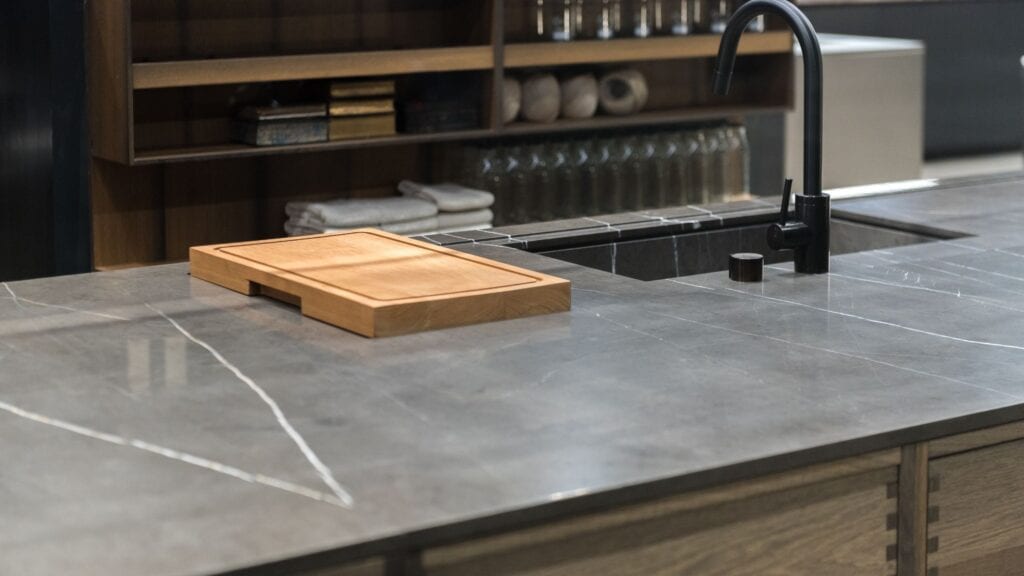
Soapstone is easy to care for natural stone is heat resistant, nonporous, and repels most stones. However, the stone is not as hard as others; hence, the countertops are easily chipped or scratched.
When freshly quarried, this natural stone is light gray but darkens when exposed to oils and water. Rub the countertops often with mineral oil to enrich the color.
While any household cleaner and water will work for daily cleaning of soapstone countertops, avoid scouring pads and powders.
Food and acids do not stain the soapstone worktops as the stone is nonporous. A mineral oil rub will help hide the scratches or any discoloration caused by hard water.
Conclusion
It is indisputable that natural stones used for countertops are beautiful and increase your home’s overall value. Good care will, however, make your surfaces last longer and maintain the aesthetic appeal.
 Imagup General Magazine 2024
Imagup General Magazine 2024
